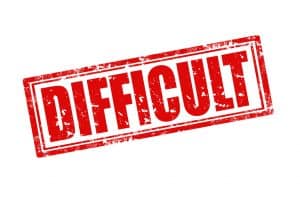Land buyers should think about the first impression they make on sellers. It can determine whether a deal is reached and at what price. Here are two examples that illustrate the point.
Some years ago, I was ready to buy 200 acres of mostly pasture for $125,000. Everything about this farm was a wreck. It hadn’t been maintained for 50 years, though the house had been occupied. Most of the buildings could not be economically repaired, and they weren’t good enough to begin with to give them new life. Every piece of fence had to be replaced. The ground, however, was good, and its views and setting were wonderful.
The sellers — heirs who were unloading the farm — were asking $200,000, but would settle for $150,000. A brother of the deceased owner was talking with potential buyers. He was in his 70s, a fellow who had spent his life as a small farmer. I knew him, but not very well. I figured the $25,000 difference between what he wanted and what I was willing to pay would be quickly spent in fixing fence, roadwork and demolition.
I wrote up a contract and arrived at the appointed hour at his house. His wife had made coffee. We sat at the kitchen table. I came in with an old hand-made leather briefcase that had once been classy and was still beaten-up classy. I put the briefcase on the table. Their eyes grew wide, as I drew out the contract. I don’t think they had ever seen a briefcase in their house before, and if they had, they did not have fond memories of it.
I realized that my briefcase had sent the wrong message. I should have taken the contract out of my back pocket. I was dressed right, nothing fancy, just jeans. But the briefcase didn’t “smell” right to these sellers. I considered taking it off their table and putting it on the floor, but that would have appeared like I was hiding it. So it sat there for 30 minutes like a 1,000-pound gorilla.
What looked like a deal, evaporated before my eyes…because the seller saw my briefcase as representing a “me” he didn’t know…and did not trust.
Here’s the second example.
A year or so later, I bought a new, fire-engine-red Toyota T-100 pickup truck. A consulting forester and I drove to a 2,200-acre property the day after I had driven it home. The truck was very new, very shiny, very clean and very red.
The acreage was a beautiful farm that had been state-of-the-art for beef cattle in the 1940s. It had dozens of white-painted, wooden buildings—all high-maintenance. The main house was new, built by a fellow who had made a lot of money in the coal business. It had an indoor pool, a projection room and all the other features you might imagine.
I was interested in about 100 to 300 acres of woods. I had about $2,000 in cash in the bank at the time. But I did have a friend in Boston who could buy the whole thing at the right price and work me into the deal for what I wanted. The seller had not exactly put a price on it, but had introduced it at about $4.5 million.
My forester and I were dressed for woods walking. I wore a ballcap. I left my briefcase in the truck.
As we rolled slowly to a stop in the courtyard, all eyes turned toward the big, shiny, as new-as-could-be, red truck. The farm manager who was representing the widow and his assistants followed my braking to a stop like it was the President rolling up in Air Force One. I watched them watching me.
As I got out, I heard the farm manager mumble to one of his boys, “Big Money From Virginia.”
My new truck had killed all negotiations. Once the seller’s representatives had categorized me as Big Money From Virginia, I could not get a firm asking price out of them for weeks and when I did it was higher than what I had been told initially.
Sometimes a briefcase is just a briefcase. But at other times, it is a symbol in the sellers’ eyes. And sometimes it’s best to look at land in a new truck only if it is adequately mucked up with fresh mud.
My friend and I still laugh over BMFV. We both knew how mistaken that first impression was.
This content may not be used or reproduced in any manner whatsoever, in part or in whole, without written permission of LANDTHINK. Use of this content without permission is a violation of federal copyright law. The articles, posts, comments, opinions and information provided by LANDTHINK are for informational and research purposes only and DOES NOT substitute or coincide with the advice of an attorney, accountant, real estate broker or any other licensed real estate professional. LANDTHINK strongly advises visitors and readers to seek their own professional guidance and advice related to buying, investing in or selling real estate.









Remarkable – I’ve been regularly visiting a retired farmer friend two states away for years in what is now a 12 year-old pickup that shows its age. Last year, I picked up a brand spanking new F150 at a fire sale and went to see my friend. The reaction from his neighbors, who all know and like me, was palpable. Nothing was said openly, but I may as well have trotted a nubile in a bikini up the farm lane – double takes from one and all.
Very good advice here. Leave the trappings of urban paychecks at home when shopping for rural property. Affronts to frugality can be more damaging than the size of your cash pile in the eyes of others.
I buy rural land in SC and I am also a timber buyer. I have had similar experiences, however, I have leared that the most important thing to remember is be yourself. Even if you wear penny-loafers every day and drive a Mercedes, just be yourself. Sellers can see right through a buyer that is trying to diquise himself as something he’s not. Sometimes bieng yourself can have a negative impact on negotiations, but more often it gives an honest impression and it will be succesful.
Exactly!!!!!
If you feel you have do dress down then the problem isn’t theirs but yours.
Sellers, for the most part, see right through shallow attempts to be on their level and quickly get turned off.
Honesty should prevail under normal circumstances.
Hi Curtis,
This brought back memories for me!
As I read through your article, I kept thinking “Is this my father writing in disguise?” 🙂 He would drive a pickup truck until the wheels fell off even though he could have afforded to buy a new one every year. He is very humble man when it comes to money. I worked for him several years before I went into real estate and he “preached” this lesson to me and my sisters all the time. (He owned a meat-packing plant)
I’ll never forget the first time I bought a brand new car. It was a Buick Riviera. I arrived at work the next morning and parked in front of the plant where I normally parked. Before I was even out of the car, he was marching up to give me a “sermon” about buying an “expensive” vehicle, let alone a brand new one. After he was finished with his rant, he asked me to park it in the back. He said “If you want to be charged the highest dollar for a product or service, just drive up in an expensive vehicle.”
That was over 25 years ago and I’ve had more than a few nice cars and houses since then. I’ve also come to understand through experience that he was right. It’s best to stay humble and keep things simple especially in the company of clients, colleagues, vendors, etc.
Point well-taken.